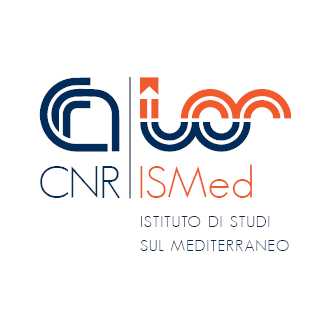Knowledge Systems, Policies, and Practices for a Sustainable and Inclusive Mediterranean
Coordinator: Desirée A.L. Quagliarotti
Abstract
As highlighted in the 2023 World Economic Forum Report, the world is currently facing a poly-crisis, a situation where crises of different nature, acting simultaneously, produce a cumulative effect greater than the sum of its parts. The concept of poly-crisis is particularly evident in the Mediterranean region, which can be considered a microcosm of global challenges. The strategic geographical position, coupled with cultural, socio-economic, political, and environmental complexity, makes the Mediterranean a unique crossroads where diverse dynamics, often interconnected, influence events across various spatial and temporal scales. Economic crises, climate change, water scarcity, food insecurity, energy transition, along with the consolidation of new explanatory variables for migration flows and instability within and between countries, outline a complex geo-economic and geopolitical landscape that poses a challenging analytical task. Hence, the need to develop knowledge systems, methodological approaches, and research outputs capable of generating new scientific knowledge and strengthening the dialogue between science, policy, and civil society. The development of interpretative models offering innovative conceptual frameworks requires a collaborative and inclusive approach, involving experts from different disciplines, academic institutions, and local stakeholders.
Objectives
In line with the strategic priorities outlined in the New European Agenda for the Mediterranean and the Sustainable Development Goals of the United Nations’ Agenda 2030, the research aims to analyze the effects of socio-economic, political, and environmental dynamics in the Mediterranean region through an inter/transdisciplinary approach and a comparative analysis between the two shores of the basin. The goal is to contribute to the scientific and academic debate and suggest evidence-based policy directions for the complex challenges of the region in the 21st century, highlighting risk factors and vulnerabilities in different areas in a poly-crisis scenario. Specifically, the research line aims to advance systemic knowledge to identify causal relationships, feedback, and dynamics influencing the stability and development of the Mediterranean region as an integrated socio-ecological system. This involves creating analytical tools that can provide a holistic view of the complex Mediterranean dynamics and contribute to identifying effective and sustainable solutions.
Activities
Participating in scientific debates, promoting dialogue between science, policy, and civil society, and contributing to education and outreach are the main components through which research activities are articulated. To achieve these goals, the research activities include:
- Construction of Theoretical Models: Resulting from a critical synthesis of existing literature, theory, and innovative perspectives, these models provide a conceptual framework to explore phenomena and interpret underlying mechanisms;
- Empirical Investigations: Conducting empirical research to gather concrete and observable data using various methodologies, including field research, interviews, statistical analyses, and other approaches to collect accurate and representative empirical data;
- Synergistic Integration of Conceptual Frameworks with Empirical Analysis: Integrate theoretical frameworks with empirical analysis synergistically to activate an iterative cycle of theoretical construction and empirical verification, contributing to a more comprehensive and accurate understanding of the studied dynamics;
- Transfer and Application of Results: Facilitate the transfer of results, including fostering dialogue between researchers, policymakers, and civil society actors, to disseminate knowledge, increase awareness, and help ensure that the generated knowledge is relevant, applicable, and adaptable to the real needs of the Mediterranean region, providing a robust foundation for practical action and policy formulation;
- Educational and Tutoring Activities: Contribute to the education of new generations of researchers, decision-makers, and professionals by encouraging the development of critical and analytical skills, providing a solid foundation to tackle future challenges.
Themes
The analysis focuses on the effects of current systemic crises in the Mediterranean, exploring the intertwining of environmental constraints, socio-economic disparities, and political instability, also through the concept of security in its broader sense of hard and soft security. Not confined solely to the strategic-military level, security is analyzed in terms of human security in its various components, with particular reference to water and food security. This includes considering socio-economic disparities, institutional weaknesses, the migration issue, potential conflicts related to the control of scarce resources, the impact of climate change, and possible strategies for mitigation and adaptation, as geopolitical factors increasingly conditioning internal balances and relations within the region.
Main collaborations
To more effectively address the complex challenges of the Mediterranean region in the 21st century, the research line seeks to foster interdisciplinary and transdisciplinary collaborations with various institutions. Specifically, the research group associated with this line collaborates regularly with universities, research centers, think tanks, and research networks on both shores of the Mediterranean. Key collaborators include: University of Naples “Federico II”, University of Naples “Parthenope”, University of Naples “L’Orientale”, University of Rome “LUMSA”, University of “Roma Tre”, University of Salerno, University of Catanzaro “Magna Grecia”, University of Tunis “El Manar,” Euro-Mediterranean University (EMUNI), Institute of International Affairs (IAI), Institute of Studies on International Politics (ISPI), Institut de la Mediterranée (IeMed), Italian Climate Change Think Tank (ECCO); Forum Euroméditerranéen des instituts de Sciences Economiques (FEMISE); Euro-Mediterranean Study Commission (EuroMeSCo).
Main outputs
To promote dialogue and disseminate knowledge at both scientific and academic levels, as well as public levels, and maximize the impact of research, the research line is committed to transferring research results in various ways. Specifically, through: essays in collective volumes, articles and special issues in national and international journals, editorial series (EPhESO: Euromediterranean Phenomena. An Economic and Social Observatory; ISMed Policy Brief Series), conferences, seminars, and Science Festivals, research projects, and Summer Schools (Eu-Med Climate with Roma Tre University).
Last update
20 November 2023, 12:30

 CNR – ISMed
CNR – ISMed